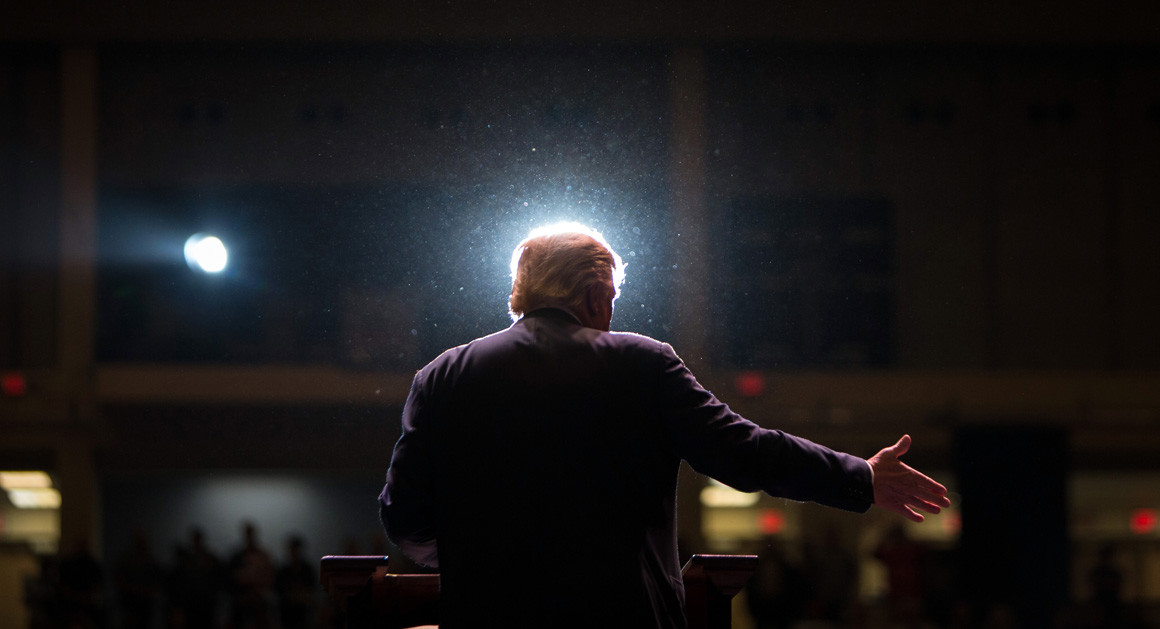
Even though Thanksgiving Day is two weeks past, I hope it's not too late to express my gratitude for Donald Trump's campaign for president. His new jibber-jabber about banning Muslims from entering the United States has awakened the animal spirits harbored by some of our nativist brothers and sisters. Yes, that’s a bad thing. But the good thing is his proposal is reviving the American consensus view about the value of religious tolerance and free speech. It’s uniting voices across the political spectrum. Donald Trump, amazingly, is inspiring America to sing “Kumbaya.”
Rebuking Trump for his comment were conservatives Sen. John McCain, House Speaker Paul Ryan and Jeb Bush, who tweeted that Trump is “unhinged.” Joining hands at least metaphorically with the conservatives was liberal Hillary Clinton, who called Trump's proposal “reprehensible, prejudiced and divisive.” The equally liberal Martin O'Malley spent his campaign's entire rhetorical budget to tag Trump a “fascist demagogue.” And a White House spokesman declared that Trump's speech “disqualifies” him from serving as president. Meanwhile, pundits Bill Kristol and Dana Milbank have attacked Trump from the right and left, likening him to a John Bircher and Mussolini, respectively. Even Tom Brokaw dusted off his teleprompter yesterday to editorialize against Trump on NBC Nightly News.
Trump has achieved the seemingly impossible with his bigotry: He has brought the two most popular strains of political thought together and reminded us that, for all our faults, Americans are pretty decent folk who, when called upon, can extend respect and civility to cultures that are different than our own. Without Trump's provocation against Muslims, it's hard to imagine Speaker Ryan standing before the press corps’ video cameras to disassociate himself, his party and the country from Trump’s hysteria. “This is not conservatism,” Ryan said emphatically.
“I have a temperament where I bring people together,” Trump agreed in September. He was talking about his skill at filling auditoriums with cheering supporters, of course, but it turns out he has an even greater skill at uniting practically everybody else from both parties against him. Trump’s cheering supporters are actually few, relatively speaking. He pulls from 25 percent to 35 percent in polls of Republican and Republican-leaning voters, but as Nate Silver wrote recently in FiveThirtyEight, this translates into “something like 6 to 8 percent of the electorate overall, or about the same share of people who think the Apollo moon landings were faked.” In October, when the Washington Post’s Philip Bump took his own yardstick to the polls, he estimated that Bernie Sanders commands more supporters than does Donald Trump.
Early in the summer, as Trump launched his candidacy and started his rise in the polls, many speculated that he was a double agent dispatched by the Democrats (namely, his wedding guest Hillary Clinton) to sabotage the Republicans with a presidential campaign that barnstormed the country like a parody of a Tea Party rally (a Mad Hatter’s Tea Party, perhaps). As John Fund wrote in National Review, what do you make of a “Republican” who “sees links between autism and pharmaceutical companies,” “revived ‘birtherism’ in 2011,” espouses crony capitalism and embraced the idea of Oprah Winfrey as his running mate? I never bought the idea that Trump was a plant deployed to destroy the Republican Party. But now that he's gone completely loopy, I'm beginning to think that he's actually doing the GOP a favor. He's ensuring that whichever candidate comes out of the Republican National Convention as the nominee will look mainstream, sane and electable compared to Trump.
In recent years, the pundit class has embraced the concept of the “Overton Window” to analyze the competition among policy initiatives. It also helps explain why the Trump candidacy is not likely to triumph. According to the Overton Window theory, only a narrow range of policies can be considered in the political arena at any given time, so politicians tend to avoid discussing ideas that might be considered “unthinkable” or “radical” by the public and instead pursue “sensible,” “popular” and “acceptable” notions that have a better chance of succeeding. But from time to time, politicians attempt to move or expand the Overton Window, so what once seemed “unthinkable” or “radical” grabs some daylight, and appears in the “acceptable” part of the window. Suddenly, it’s a policy that could happen.
Earlier this year, Trump tested the edge of the Overton Window by proposing the mass deportation of 11 million undocumented immigrants, something most regard as technically impossible, if not unthinkable. Now comes his Muslim ban, which is equally unthinkable and possibly even unconstitutional. The speed with which Trump's opponents in both parties have denounced him and his “unthinkable” proposals have all but removed them from consideration, and that's a good thing. To sustain interest in his campaign, Trump will have to find another unthinkable proposition to loft. Now that right-wingers and left-wingers are united in opposition to his ugly decrees, the window will be slammed shut on him even faster the next time he pitches.
The overwhelming response from both parties to Trump's demagoguery reminds us of our basic American decency. I don’t mean to suggest that we should fear and denounce every unthinkable idea proposed, or that the parties should join hands in a bipartisan fashion to destroy anything outside our usual comfort zone. For example, gay marriage and marijuana legalization—long considered unthinkable—were ultimately embraced after a long and substantive debate, and we’re better for it. But our rational response to the short-fingered vulgarian’s latest stunt shows that we are, in the end, the masters of our animal spirits. To that I can say only one thing: Thanks, Trump!
- Publish my comments...
- 0 Comments
